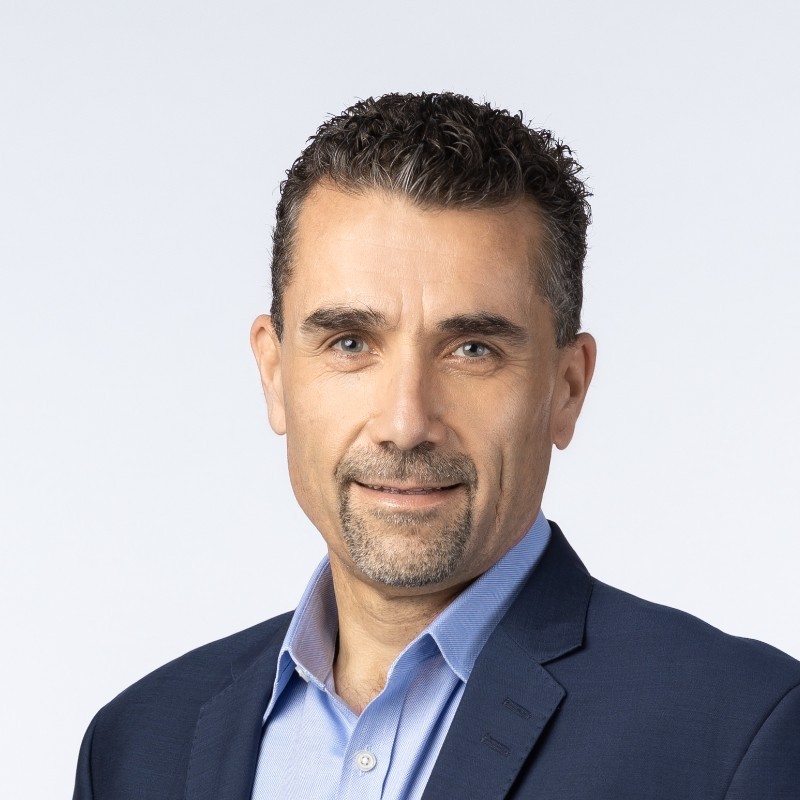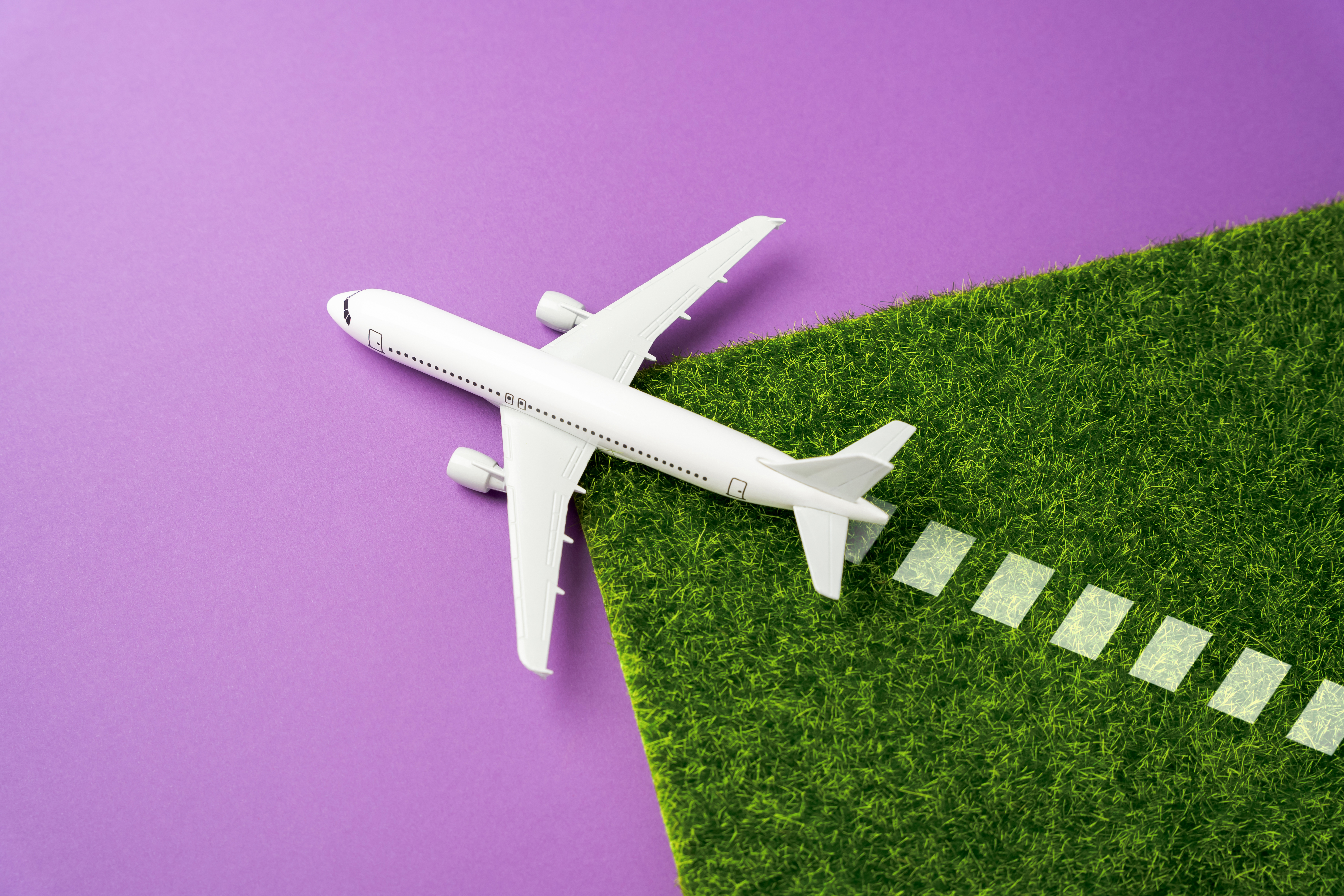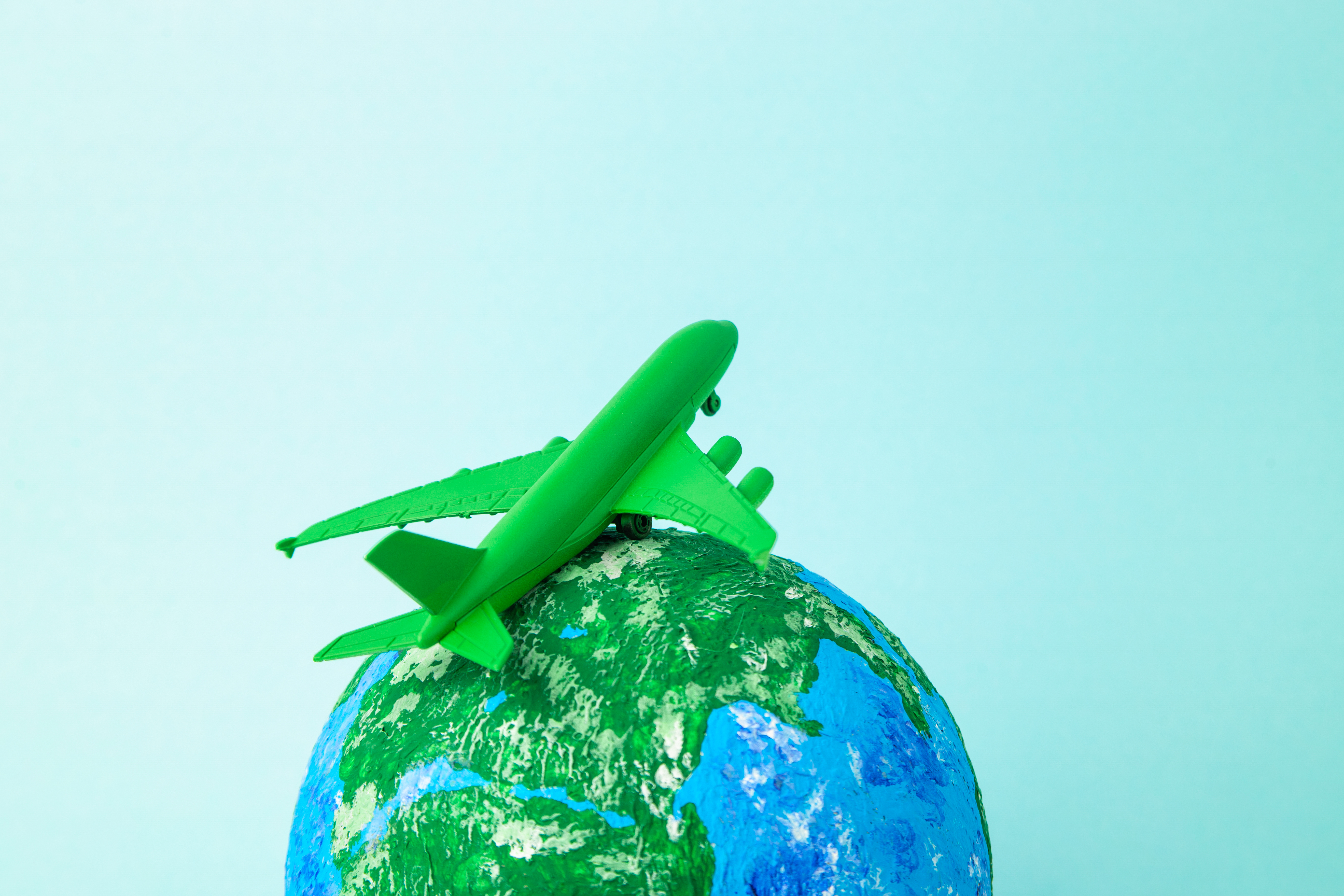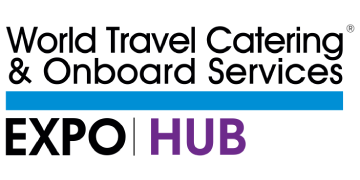Matt Crane – Sustainability Ambassador: WTCE 2025
1. As Sustainability Ambassador for WTCE 2025, what does this role mean to you?

I was honoured to be asked back as the Sustainability Ambassador for the second year running. I’ve worked in this industry for over 25 years – in the business I started in 2004, Monty’s Bakehouse, we led the way in removing unnecessary second service tray-set-up and pioneered the introduction of sustainable oven-able packaging for inflight snacks – so environmental responsibility has always been important to me. Once I left Monty’s, I was keen to ‘give back’ to a sector that has looked after me over the years. I started the Aviation Sustainability Forum (ASF) in 2019 with a view to helping the sector come together to collaborate to reduce inflight waste and improve circularity. The Ambassador role is significant because it demonstrates the strategic importance of sustainability in all the businesses represented at WTCE. It also gives me unique insight into the great work that many companies are doing to become more sustainable which I’m sharing through the Steps to Sustainability trail.
2. How do you see the role of sustainability evolving in the aviation and catering sectors in the next 5-10 years, and what role do you believe WTCE and other industry events can play in driving this change?
We all recognise that Sustainable Aviation Fuel (SAF) is a major focus for the industry as a whole and will have the biggest impact when it comes to decarbonisation. There is a huge question mark over whether it is achievable to produce SAF in the quantities that we need – especially considering the growth projections for aviation generally. But ‘necessity is the mother of invention’ so no doubt work will continue at pace to find the alternative fuel solutions we need. There are undoubtedly pockets of great work in the inflight aviation and catering sectors when it comes to sustainability. We’ve made good progress in terms of working with renewable and recycled materials for onboard products with some companies beginning to go further and design to the supply-chain rather than just the use of more sustainable materials. This is to be encouraged as by far the majority of the sustainable materials used by airlines are incinerated or sent to landfill by law and due to cost constraints. This show and other industry events are an opportunity for companies to showcase and raise awareness of their work in this space and I particularly value the Taste of Travel Theatre at WTCE and other speaker platforms where industry experts from across the sector can really debate and challenge the status quo.
3. With your experience, how do you think the industry is currently performing when it comes to sustainability? Are there any areas that need more attention or improvement?
As you would expect me to say – I think there is much more to be done – particularly around the waste challenge. The ASF Cabin Waste Composition Audit (CWCA) programme is helping the sector gather data on the size and scale of its waste problem and the numbers are huge. Currently 3.6 million tons of waste per annum – and with passenger numbers set to double by 2050 – we could be looking at nearly 8 million tons of waste being generated and the majority sent to incineration or deep landfill unless we act. At the moment, airlines and caterers are trying to work out how much waste they generate but everyone is doing this in different ways – meaning the data is inconsistent and not shared. I would like to see everyone tracking and recording waste in the same way with the high level, aggregated data shared with IATA and other governing and regulatory bodies to help us all firstly understand the true extent of the issue and the secondly tackle it together – with shared best practice and a common understanding of the sector’s waste challenge.
4. Can you share some successful sustainability initiatives or collaborations you’ve been part of that you believe have had a significant impact in the travel and catering industries?
ASF member SATS catering in Singapore has consistently made its catering units available to the ASF to develop the ASF CWCA Programme. But not only that, SATS has been involved in the development of new recycling pathways that can act as a beacon of change for the entire sector. ASF clients of the CWCA Programme have not stopped at collecting data, but are using this internally and in collaboration with other airlines and caterers to take the first steps to developing best practice, that can also be adopted as best-practice standards across the aviation sector.
5. Your session, “What Goes Up – Will Come Down,” addresses cabin and catering waste. Can you give us a preview of some of the key takeaways you hope attendees will gain from this discussion?
I’m really looking forward to this discussion – we have a great selection of panellists from across the sector who are all very focussed on sustainability. I hope the key takeaways will provide attendees with valuable insight into how the sector can get a better understanding of its waste, why it needs to do so and potential waste and cost reduction solutions. We have Justin Cook from TUI on the panel – TUI have just completed the first part of their CWCA programme so he can share their experience and talk about the data, solutions and targets that have come about as a result of the benchmark waste audits the ASF has completed with TUI.

6. The session will emphasise the importance of understanding, measuring, and reducing cabin waste. Can you explain how the industry has evolved in its approach to waste management and what the introduction of a standardised operating procedure means for the future of waste reduction?
I think waste management has been low on the priority list for a long time. The International Catering Waste Regulations make it very difficult to make any changes to process and waste disposal, there’s also infrastructure change needed (i.e. cost), stakeholder alignment etc. – it’s often put in the ‘too hard to do drawer’. With emphasis on more sustainable practice and many airlines now having to report on waste levels as part of their ESG reporting – it’s rising to the top of the in-tray and becoming the urgent issue it rightly should be.
The introduction of the IATA endorsed ASF CWCA Programme as the standard methodology for the measuring and recording of cabin and catering waste means for the first time, the sector now has a Standard Operating Procedure to sort, measure and record waste therefore ensuring that all stakeholders count the same things in the same way. This standardised approach ensures accurate and consistent data capture and reporting – enabling data driven decision making and robust, informed waste reduction target setting. The data is the key to effective waste reduction and understanding the scale and types of waste.
The more airlines and caterers who participate in the programme – the richer the data. The aggregated data collected is then anonymised and shared with IATA who can then support the work to harmonise regulation and report on the overall effectiveness of the sectors waste reduction strategies. I see the ASF in the future being key to this data sharing piece – and supporting the sector to make the necessary changes through shared initiatives, best practice etc.
7. Could you share some of the key challenges that airlines and catering suppliers face when it comes to separating and measuring cabin waste, and how can they overcome these challenges?
It’s a complex issue – firstly it’s a highly regulated area. There is International Catering Waste (ICW) regulation in many parts of the world that requires food waste and waste that has come into contact with food to be incinerated or sent to deep landfill. However, the regulation is inconsistent making it virtually impossible to have a unified waste strategy that is clear and easy to follow for all stakeholders. For example, before Brexit, in the UK airlines could recycle waste that had arrived from the EU. The day after Brexit, they now must incinerate because it’s classified as ICW – yet nothing has changed in terms of waste composition.
Secondly, there are numerous stakeholders involved in waste management and commercially some will not be as incentivised as others to reduce waste. With the industry set to double by 2050, we need to collectively see the bigger picture – bring all stakeholders on the same journey – and work out how we grow sustainably together.
There are many other challenges such as space and time on board, short turnaround time on the ground, lack of recycling / waste space and infrastructure on airport – I could go on… suffice to say it’s not an issue that any one party can solve alone. The solutions are out there – there are some ‘quick wins’ we can implement right away and using the standardised CWCA tools is a great first step to capturing the data that airlines and caterers need to be able to work out the solutions and then monitor progress. An immediate change is to use the audit data generated to reduce product loading at departure without affecting the passenger experience. The sector currently sends to waste USD$2.5billion of untouched food – that’s enough to feed over a billion people with a 500g meal. Surely, we can do better than this!
8. How do you see the role of passenger behaviour in reducing cabin and catering waste? Is there a need for more passenger engagement on the issue?
That’s an interesting point – I’m sure passengers have very little awareness of the waste issue. There are a number of things passengers can do to help reduce waste if we, as an industry, support behavioural change – such as encouraging pre order and recycling / separation on board. In reality though, I think we have a responsibility to put the building blocks in place to solve our waste issue ourselves. It’s within our power to do so and we would do much better to get our own house in order as best we can from within our industry before we start asking passengers to get involved.
9. Finally, what is the key message you want attendees to walk away with after your session on cabin and catering waste at WTCE 2025?
This is an issue that is within our power to address now. Data is knowledge and the more we have – the more informed decisions we can make. Waste audits are essential, and we now have the standardised tools to be able sort, measure and track waste consistently. Airlines and caterers should get involved now. What goes up – will come down – there really is no time to waste.

Matt is moderating ‘What goes up – Will come down’ at the Taste of Travel Theatre on Tuesday 8 April from 15:15-16:15.
His session will cover cabin and catering waste – meeting the challenge of understanding, measuring and reducing cabin waste. For the first time, our sector has a standardised operating procedure for the segregating, measuring and recording of cabin and catering waste. Join ASF Founder & WTCE Sustainability Ambassador Matt Crane and a panel of experts as they discuss the importance of establishing robust CWCA measurement and analysis. This session is a ‘must see’ for everyone involved in the catering supply chain and sustainability colleagues.
www.aviationsustainabilityforum.com
Join us at World Travel Catering & Onboard Services Expo
Join the industry’s main marketplace for a world of inspiration to enhance the onboard experience.
Join us from 14-16 April 2026 at Hamburg Messe.
